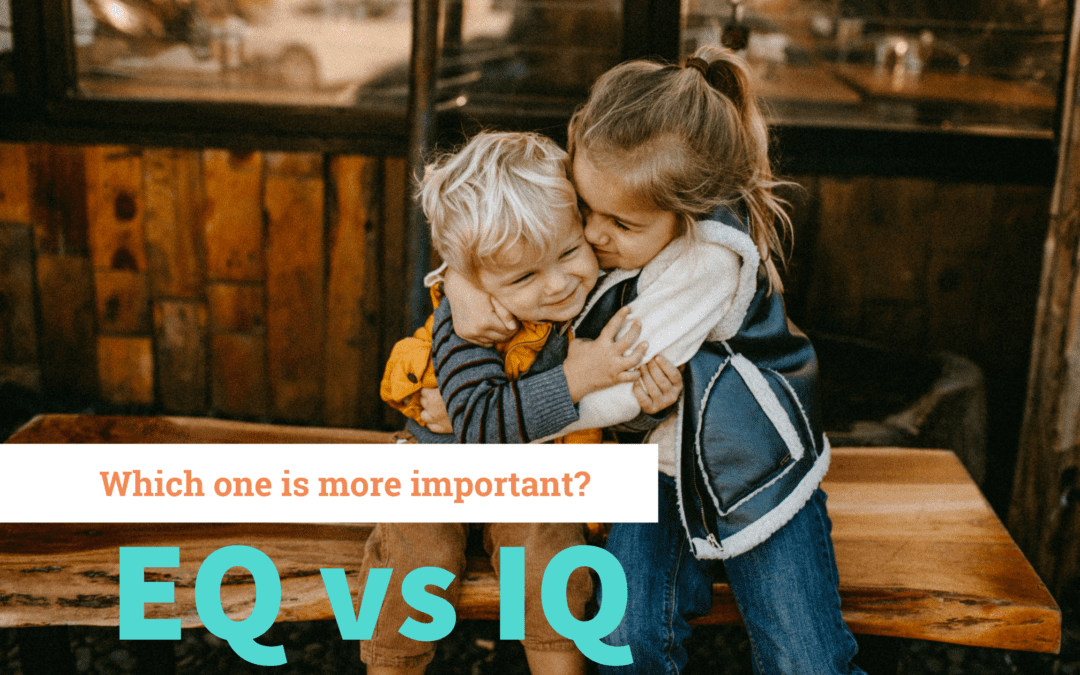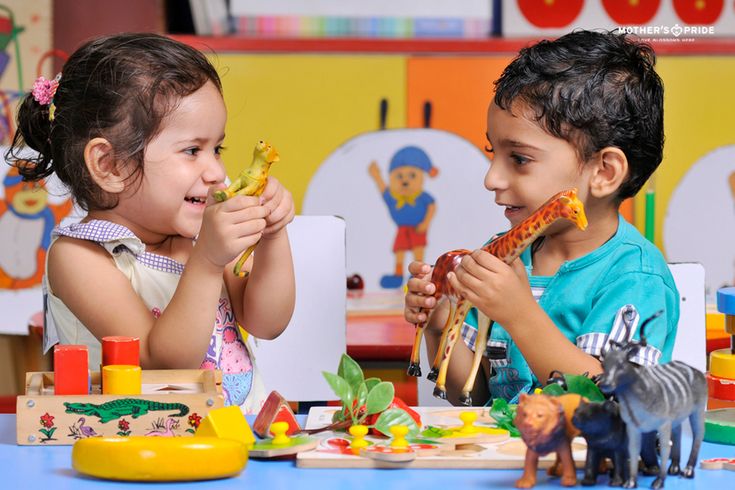“As parents seeking to give the best opportunities for our children, do we sometimes wonder if our focus on academic performance is overshadowing the equally essential part i.e their emotional development?"
In the fast-paced world of today, parents are always trying to give their best to their kids. High grades, top schools, and numerous extracurricular activities are often at the top of the priority list. But in the rush to achieve academic success, one very important component is often overlooked: emotional intelligence (EQ). But what is EQ?
Unlike IQ, which measures cognitive abilities, EQ encompasses the ability to understand, manage, and express emotions effectively. Since EQ has a significant impact on a child's relationships with others, mental health, and overall happiness, it is crucial in their development.
To understand this concept better, let’s dive into a story that highlights the importance of emotional intelligence.
Meet Ananya Sharma , a bright and enthusiastic 10-year-old girl. Ananya’s parents, Mr. and Mrs Sharma have always placed a high value on academic success. To ensure she does well academically, they enrolled her in advanced classes, after-school tutoring, and even summer programs . However, they noticed that Ananya often seemed stressed, quiet, and struggled to make friends. Despite her academic achievements, she rarely smiled and often complained of stomach aches and headaches.
One evening, after Ananya tearfully confessed she felt overwhelmed by her busy schedule, Mr. and Mrs Sharma began to worry. They decided to meet with Ananya’s teacher, Mrs. Singh. In their meeting, Mrs. Singh shared her observations about Ananya’s emotional difficulties and advised that they pay greater attention to her emotional well-being. Initially, Mr. and Mrs Sharma were skeptical, believing that academic success would ultimately lead to happiness. But Mrs. Singh insisted, explaining that emotional intelligence is just as equally important as academic success.
Taking Mrs. Singh's advice to heart, John and Lisa started paying more attention to Emma's emotions. They started spending quality time together, discussing her emotions and encouraging her to express herself. Gradually, Ananya started to open up, her anxiety reduced, and she began forming meaningful friendships. Her overall well-being improved, and surprisingly, so did her academic achievement.
The Importance of IQ and EQ
IQ (Intelligence Quotient), measuring brainpower, is undoubtedly important. It encompasses skills such as logical reasoning, problem-solving, and analytical thinking. Ananya's parents prioritized her IQ, enrolling her in advanced classes and tutoring. While this emphasis on IQ is acceptable because doing well academically frequently opens doors for future opportunities —but it does come at a cost . Ananya felt stressed and struggled socially, showing that while IQ matters, it's not the only predictor of happiness.
On the other hand, EQ (Emotional Quotient), like an emotional superpower, helps kids form relationships, handle challenges, and maintain mental wellbeing. Mrs. Singh identified Ananya's emotional suffering and made her parents understand how to prioritize EQ. By doing so, they helped Ananya in developing crucial emotional skills. This not only relieved her stress and improved her social life but also unexpectedly improved her academic performance. EQ complements IQ, resulting in a complete toolkit for overcoming challenges in life.
Balancing IQ and EQ: The Key to a Child’s Success
While IQ can lead to academic and professional achievements, EQ is just as important for personal as well as social success. A child with a high IQ but low EQ may flourish academically but can struggle with social interaction, experiencing increasing stress and making it difficult to deal with life's complexities. In contrast, a child with a balanced IQ and EQ is more likely to live a joyful and successful life.
Thus, finding a balance between IQ and EQ is essential. Ananya's story emphasizes how important it is to support both of these areas of a child's growth. By doing that, parents can ensure that their children are happy and self-assured in addition to achieving academic success Thus, by giving equal importance on IQ and EQ, parents can enable their kids to achieve academic success as well as emotional growth and lead satisfying lives.
The Parent’s Role in Enhancing Emotional Intelligence
Parents play a fundamental role in developing their child’s EQ. Here’s how you can guide your child towards a balanced emotional and intellectual growth:
1. Model Emotional Awareness: Demonstrate healthy emotional behavior. Express your feelings openly and honestly and show empathy towards others. Children do learn by observing their parents. When you’re frustrated after a long day, instead of bottling it up, share it with your child in a simple way, “I had a tough day at work today, and I feel a bit frustrated. How about we read a story together to relax?
2. Encourage Open Communication: Make sure your child has a secure place to express their feelings without fear of getting judged. Listen actively to them and understand their emotions. If your little one is upset about a broken toy, respond with, "I can see you're upset that your toy broke. It's alright. Let's see if we can fix it together.”
3. Teach Emotional Regulation: Help your child to understand the feelings they experience, such as happiness, sadness, or anger. When they're upset, teach them how to take a deep breath. Help them stay calm by noticing things around them, like the sound of birds or the feel of the ground. Encourage them to use writing or drawings to express their feelings. So, when emotions get big, they can breathe, remain mindful, and get creative to feel better.
4. Promote Empathy: Encourage your child to understand and consider other people’s feelings. Discuss different perspectives and the impact of their actions on others. For example, “How do you think your friend felt when you took their toy without asking?”
5. Support Social Skills Development: By giving your child opportunities to engage with other children, you can help them develop good social skills. Instruct them on essential skills such as sharing toys, working as a team, and solving problems when they disagree. Encourage your child to participate in group games, share snacks with others, and use polite conversation to settle disputes about activities, for example, during a birthday party.
6. Balance Academics and Play: Ensure that learning and play are well balanced in your child's daily routine. Make a timetable that includes time for schoolwork as well as breaks for play and relaxation in between. This helps keep stress levels down and sparks creativity. Allocate specific times for learning activities, like reading or math practice, as well as time for outdoor play or creative projects like painting or building with blocks. Finding this balance helps your child stay engaged and happy while learning.
7. Praise Efforts, Not Just Results: Praise your child for his or her efforts rather than just their achievements. For example, Instead of only praising achievements “You’re so smart for getting an A,” praise the effort they put in, “I’m proud of how hard you worked to prepare for that test.” This shows them that hard work and perseverance are what counts.
8. Teach Problem-Solving Skills: Encourage your child to think through problems and come up with solutions on their own. This fosters independence and critical thinking. Instead of jumping in to solve it, ask them questions like, "Where was the last place you saw it?. This encourages them to think for themselves and find solutions, boosting their confidence and problem-solving skills.
9. Foster Resilience: Teach your child that it's normal to face challenges and setbacks, it’s a part of life and teach them how to bounce back stronger. For example, when they struggle with a new skill, say, “It’s okay to make mistakes. That’s how we learn. Let’s try again.” This helps them develop resilience and the confidence to keep trying, no matter what obstacles come their way.
10.Encourage Positive Self-Talk: Teach your child to recognize negative self talk and replace it with positive affirmations. For example, If they say, “I can’t do this,” respond with, “You can try again. Let’s say, ‘I’ll do my best!” It helps boost their belief in themselves and their abilities
CONCLUSION:
By prioritizing emotional intelligence alongside academic success, parents can provide a more holistic upbringing for their children. As much as we focus on grades, our kids' feelings matters too. When we help them understand their emotions, they not only thrive in school but also feel happier in life. So, let's hold their hands through the highs and lows because love and understanding pave the way for their brightest futures









